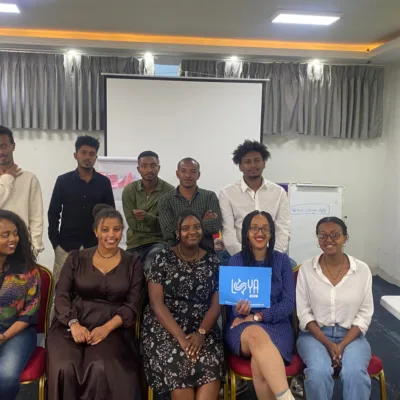In November 2022, Elon Musk, the current CEO of Twitter, unveiled his vision of “Twitter 2.0” as an app that combines a broad range of features. Through his tweets, Musk indicated that Twitter 2.0 would include elements of PayPal, Uber, and other functions, all integrated into a single interface similar to the Chinese app WeChat. Additionally, Musk expressed his willingness to acquire the recently defaulted Silicon Valley Bank and turn it into a value offering on Twitter, ultimately transforming it into a fully digital bank.
Meanwhile, Telegram, an instant messaging platform, has recently introduced a decentralized cryptocurrency exchange (wallet) service, enabling customers to buy and sell various cryptocurrencies via a peer-to-peer platform. This emerging trend, wherein an application offers multiple values through a single platform, is gaining traction worldwide and is commonly known as the “Super-app” trend.
Super-apps are mobile applications that combine various functions or mini-apps into a single interface. These applications typically offer a range of product features, such as social networking, financial services, delivery, and ride-hailing platforms, all accessible from one app.
The concept of super-apps originated in China with the introduction of WeChat in 2011. WeChat, initially an instant messaging platform, integrated various features, such as financial services and ride-hailing, to become a super-app.
There are two types of super-apps: the first is a single application provider offering diverse services, while the second involves integrating different applications into a single app using APIs. WeChat, for instance, presently has approximately 4.3 million mini-apps within its platform and an overall user base of around 1.1 billion people.
The trend of super-apps is gaining momentum in Africa as well. Halan, an Egyptian platform that started by offering ride-hailing services using Tuk-Tuks (known locally as Bajaj) and motorcycles, recently expanded its offerings to include a mobile wallet service in the digital finance space.
In 2021, MPesa, the popular mobile money platform in Kenya, also introduced a super-app that incorporates e-commerce and various mobile money services. Global and African trends demonstrate that applications become super-apps when they establish trust and a loyal customer base in their core product offerings.
In Ethiopia, local applications such as Hulugram and Meda Chat have already demonstrated the potential of super-apps by offering multiple services within a single application. However, I am of the opinion that the launch of the telebirr super-app in the Ethiopian digital ecosystem represents a significant advancement and has the potential to accelerate the shift in consumer behavior toward the acceptance of digital applications, thereby driving the adoption of digital platforms throughout the country.
telebirr, a mobile money platform launched by Ethio Telecom in 2021, has already garnered around 30 million users by building trust through its mobile money platform and facilitating transactions worth about 370 billion ETB as of March 2023.
Ethio Telecom unveiled its super-app platform that includes e-commerce, entertainment, food delivery, and various integrated mini-apps, further expanding its offerings to meet the evolving needs of its customers.
telebirr is on course to provide many benefits for the general population and startups. However, I would like to emphasize three benefits, that I think can assist in the digital transformation of the Ethiopian economy. The first two advantages relate to the user, while the second advantage relates to startups and digital product developers.
According to a recent report by Ethio Telecom, the number of internet and data users reached 33.4 million in March 2023. Since July 2022, there has been an average growth in internet and data users of 800,000 per month. This represents a eureka moment in the Ethiopian digital economy, as the internet is being increasingly adopted on a large scale.
The introduction of the telebirr super-app at this time has the potential to shape consumer behavior by promoting the use of digital applications for day-to-day activities through telebirr. With a plethora of products available on the platform that help alleviate consumer pain points, the adoption of telebirr can lead to greater efficiency in the Ethiopian economy.
More from the Author- Ethiopian Banks be Ready for the Competition
The second advantage pertains to user empowerment and confidence. Consider a rural household that pays its utility bills through telebirr or a micro-business in Ethiopia that obtains credit for its working capital through the telebirr loan program. In both cases, users will feel empowered and confident in utilizing various digital products for their personal and commercial activities. As they contain different services or mini-apps within one application, super-apps offer users a range of options to explore new products they may not have encountered previously.
For Ethiopian startups and digital products, the development presents a significant market opportunity as they can integrate their mini-apps or platforms with telebirr services.
This integration reduces the cost of acquiring new customers and enables them to reach a wider range of customer segments. Moreover, startups that integrate their mini-programs or apps to telebirr require minimal KYC progress, as users have already gone through the necessary process while opening a telebirr account. This results in increased customer utility and a better user experience.
On the other hand, the main drawback of the telebirr super-app pertains to data privacy and security. Due to the numerous application and product features housed within the application, super-apps generate and collect vast amounts of data. Without proper frameworks in place, this data may be accessed and utilized by various parties without the user’s consent.
Additionally, telebirr poses a potential risk for fintech startups and their products. As more startups integrate their payments through telebirr, there may be fewer opportunities for alternative fintech products on the market, leading to the monopolization of telebirr as the dominant player in the payment industry. This could slow down technology adoption and innovation in the fintech industry.
As evidenced by experiences around the world, the success of super-apps hinges on the establishment of trust in their core product offerings and the manner in which they cater to the local demand of the economy. In my opinion, Ethiopia finds itself at a pivotal moment in the evolution of its digital economy. Super-apps have the potential to hasten the take-off of the Ethiopian digital economy.
However, realizing this potential necessitates critical considerations such as building trust, tailoring the ecosystem to the local community’s needs, and government support, among other factors. If these considerations are taken into account, super-apps can serve as a vital catalyst for accelerating the growth and development of the digital economy in the country, thereby creating immense opportunities for Ethiopians.







